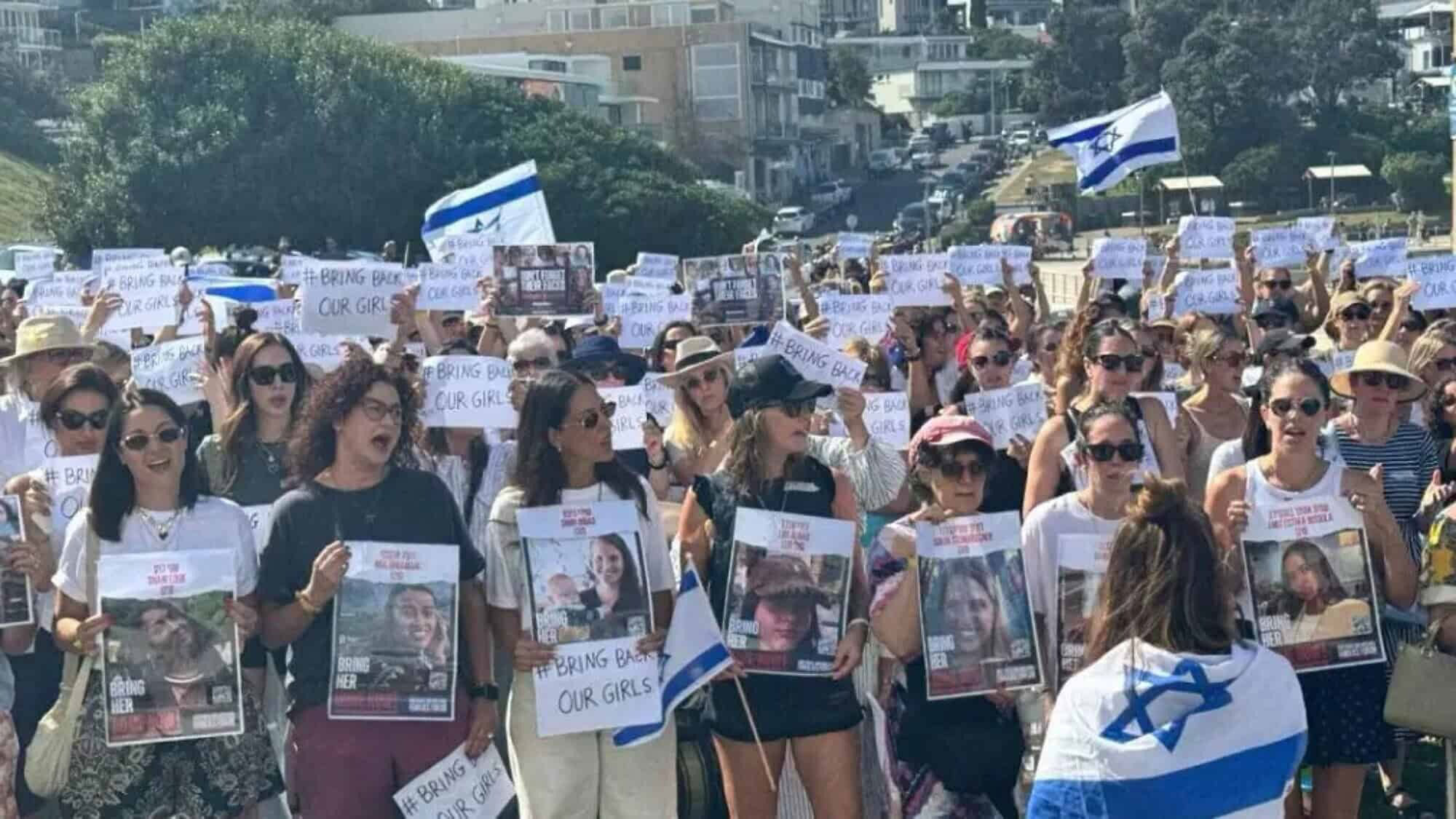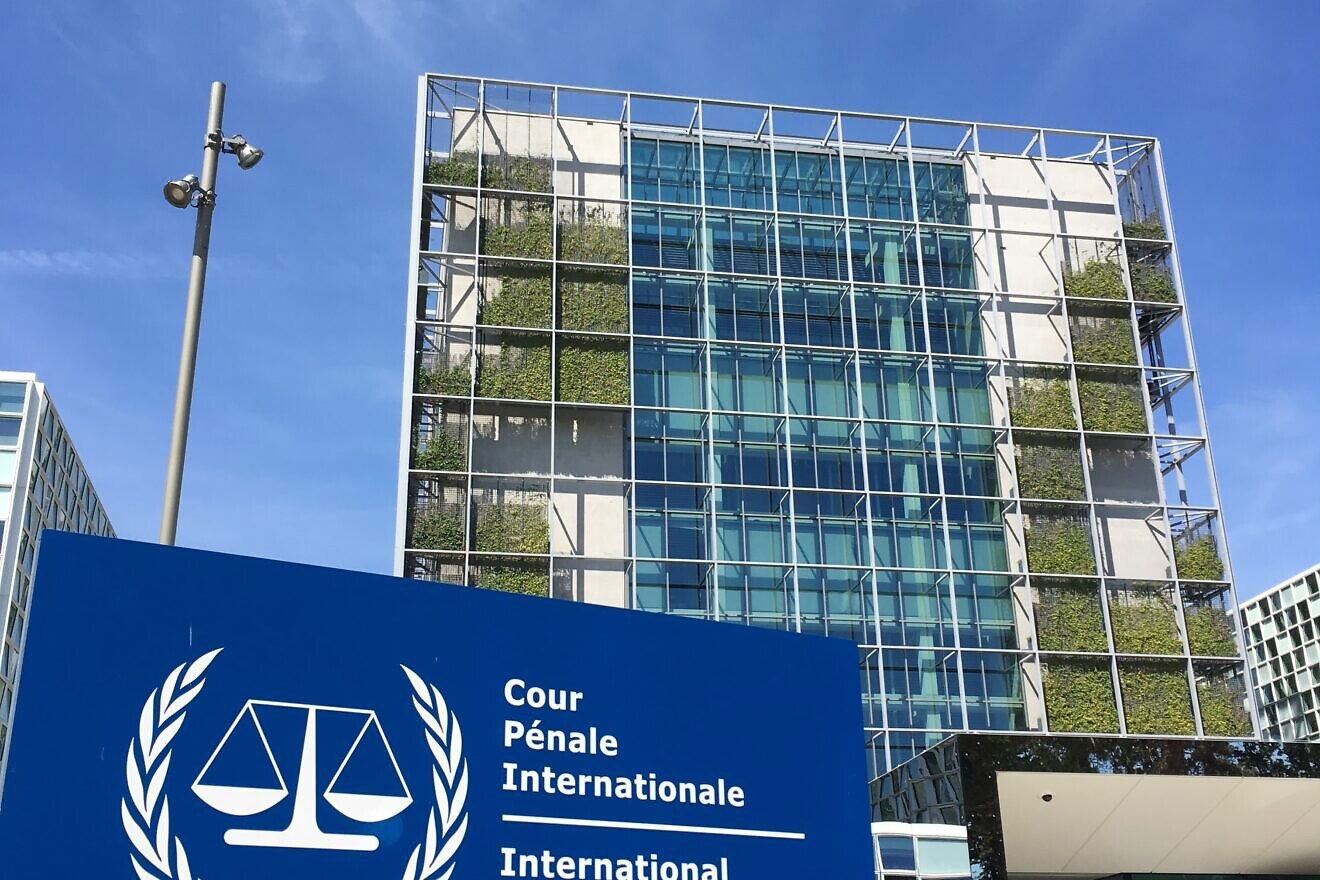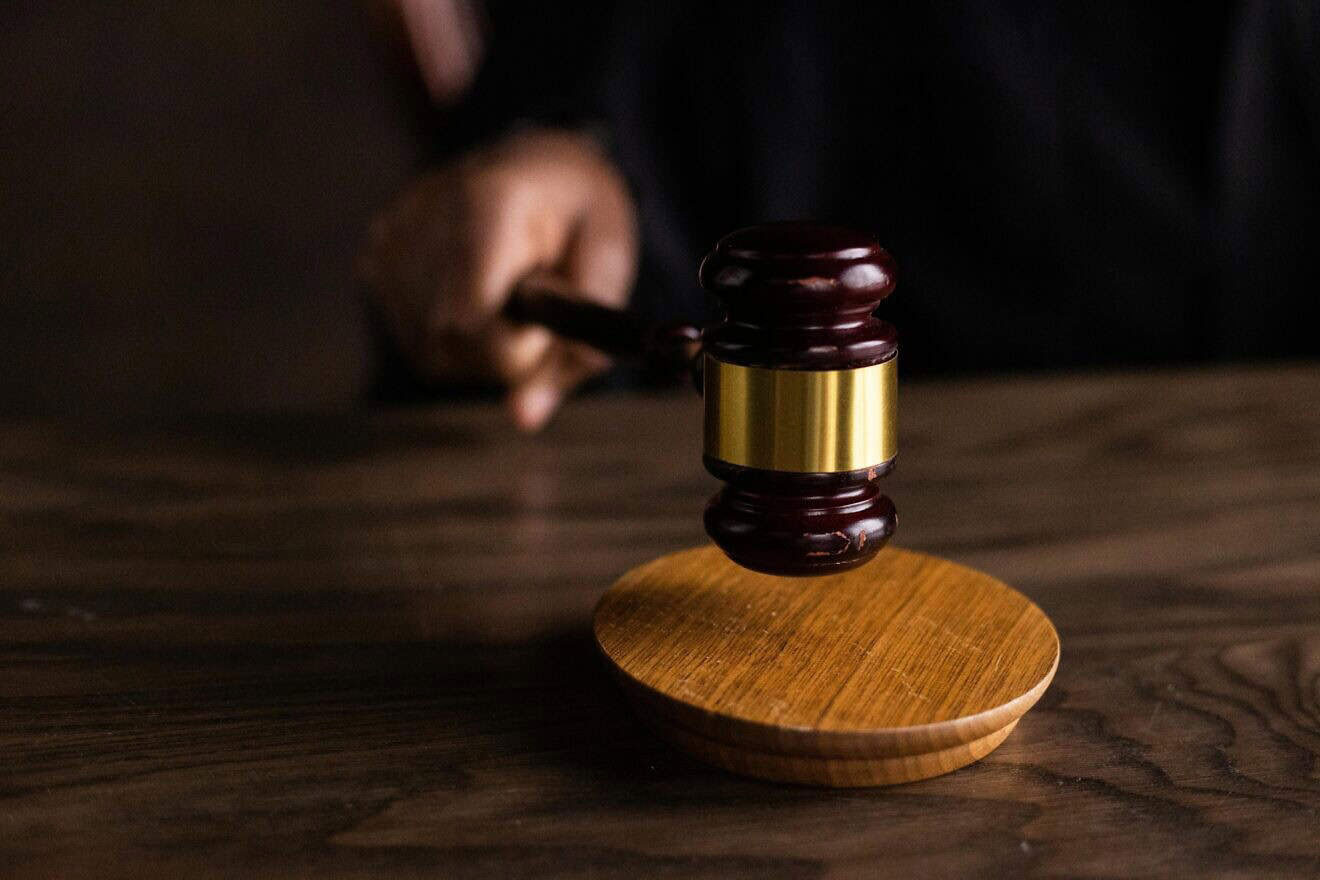Courtesy of JNS. Photo credit: Courtesy
A rally at Bondi Beach in Sydney calling for the release of female Israeli hostages, on International Women’s Day, March 8, 2024
(JNS) — The unprecedented rise in antisemitism during the past 16 months is undeniable. Not a day passes without reports of antisemitic incidents worldwide, a relentless surge that began in the wake of Hamas’s deadly Oct. 7, 2023, attack on Israel.
While American university campuses and European cities have dominated international headlines, the past month saw a specific destination suffering from the hateful phenomenon: Australia.
Sydney-based Dionne Taylor navigates this new reality through dual roles: as a global PR manager and Australian emissary for ISRAEL-is, an Israel advocacy organization, and as a mother of daughters aged 10 and 14 during Australia’s most volatile climate for Jews.
‘The police did nothing’
Q: Recently, we witnessed a sudden wave of antisemitism across Australia. Were these incidents surprising? How has the atmosphere in Australia been lately?
A: “On Oct. 9, 2023, we got messages from our community security group saying, “If you are Jewish, do not leave your house for your own safety.” That night, protesters at the Sydney Opera House burned the Israeli flag and chanted, ‘F*** the Jews,’ ‘Gas the Jews.’ The police stood there watching it happen and did nothing,” Taylor said.
“There had been a few turning points that have made this situation so much worse, but that night, two nights after Oct. 7, Israel hadn’t even gone into Gaza. The kibbutzim were still on fire, and this permitted the antisemites in Australia to behave this way. I feel like we’ve reached a fever pitch with the attacks that we’ve had just this last month. There was lots of spray-painting on cars and homes, firebombings of cars, a firebombing of a childcare center, and a synagogue. It’s just been terrible.”
Taylor emphasized most of the time, the attacks’ victims have not been Jews. “So they firebomb someone’s car and they’re not Jewish. They spray ‘F*** the Jews’ or ‘F*** Israel’ on someone’s home, and they’re not Jewish. It’s affecting the everyday Australians.
“A turning point was when they discovered a caravan in Sydney, about an hour away from where I live, that had explosives in it with instructions to blow up the synagogue and individual people’s homes. It was a very targeted mission. This was intercepted, and incredibly terrifying. They said that if they were successful in achieving this attack, it would have gone down in history as the biggest terrorist attack in Australia that we’ve ever had.”
Australia’s historically low rate of violent crime and strict gun control laws make these incidents particularly alarming.
“[In terms of] terrorist attacks here in Australia, the Lindt Cafe was it,” Taylor explained, referring to the 2014 attack in Sydney. “This was a major thing in Australia and it took everyone by surprise. We just don’t have this type of, behavior or experience here until now,” she added.
“The police suspect that it’s an organized crime syndicate where they’re hiring hitmen and paying them money to do it. The people who are actually committing the crimes are these lowlife losers, doing it just to get money. They’re not necessarily antisemitic. They’re just carrying out the act.”
‘Oct. 8 Jew’
Q: How did Oct. 7 affect the Jewish community in Australia?
A: “The police have definitely stepped up their presence — it’s called Operation Task Force Pearl. They’ve put on hundreds of policemen that are roaming our streets — I live in a densely Jewish-populated suburb.
“My kids are at a Jewish school and we pay security fees to have armed guards all the time. We’ve got police presence at synagogues and public Jewish gatherings. We had police helicopters flying right overhead trying to catch people who are doing these acts in the middle of the night. It’s quite terrifying,” she shared.
However, beyond the challenging reality faced by Australian Jews, Taylor pointed to an interesting phenomenon that emerged in the wake of Oct. 7: “I can tell you now that the Jewish community in Australia has their body in Australia, but their hearts in Israel. You know there’s an expression, an ‘Oct. 8 Jew’?”
The term, she explained, refers to Jews who found a renewed connection to their heritage and community following Hamas’s attack.
“Now, the attendance in the synagogue and communal events is much bigger. That need to feel unified and united amongst your community has been amplified. We are leaning on each other for support here, and the Oct. 8 Jew is exactly that. It’s the one who proudly wears Magen David now.”
Q: You would assume Jews abroad would conceal their identity due to fear.
A: “For me personally, it just was never a thing. Being Jewish was always important to me, but it never truly defined who I was. Now, I feel it’s very much defined who I am and my values, and I’m not the only person that feels that way.
“For my children, this is the most heartbreaking thing. They take the bus to school and they stop wanting to wear it. This was early on in the war, and then it started again recently, because we just went back to school. They wanted to take off their Magen David, and I said, ‘No, you should wear it. You’ll wear it proud.’
“But the fact that it’s in their psyche — a 10-year-old child should not be worried about that. Now I feel like it’s in her mindset forever. That’s really sad.”
‘Everyday Australians are victims too’
Q: There has been a lot of criticism directed at Australian Prime Minister Anthony Albanese’s response to rising antisemitism since Oct. 7, even from Prime Minister Benjamin Netanyahu himself. Do you think this might have perpetuated the current incidents?
A: “We’ve had weak leadership from the start,” Taylor said. She pointed to Albanese’s delayed response to antisemitic incidents and Foreign Minister Penny Wong’s refusal to visit southern Israel’s attack sites as examples of what she sees as insufficient government action. “He simply cannot continue to be our prime minister. We need better role models here,” she added.
Taylor identified two other factors fueling antisemitism: insufficient consequences for hate crimes and the growing influence of social media.
“Some digital influencers in Australia, that have gathered huge momentum, are digital terrorists,” she said. “We also need stronger punishment. Someone got arrested for I think it was the spray-painting of one of the synagogues, and they got a $1,500 [$950-U.S.] fine. That was it. It’s nothing. The punishment does not fit the crime.”
Q: What are your thoughts about the new hate-crime legislation?
A: “I’m in support of anyone getting punished for doing bad things, but it’s not enough. We’ve got about 100,000 Jews mostly concentrated in Sydney and Melbourne, and every single Sunday in the city, there are these pro-Palestinian protests in provocative places outside synagogues. They’ve made a law that now you can’t protest outside of places of worship — so it’s not right outside, but it’s down the road. Why don’t they just ban it? I heard it costs the taxpayer a lot of money to fund the police presence at these rallies.
“Everyday Australians are getting fed up with it, because they have to pay to keep it safe at these rallies. We had some Jewish rallies that were all very peaceful; we held hostage signs and a few people spoke, and we sang ‘Hatikvah,’ and that’s it. We’re not marching, it’s not intimidating, we’re not chanting hate speech. It’s a very obvious difference between their rallies versus our rallies.
“The everyday Australians get caught up in this hatred. We need them to speak up, because they’re victims of the antisemitic attacks too. Unfortunately, the loud minority is getting covered in the media. These behaviors are very un-Australian. We’re peace-loving.
“At ISRAEL-is we’ve got some big goals here in Australia, because we’ve got a lot of antisemitism. I think we’re the laughingstock of the world. We’ve got a very Zionist community, a very engaged community, and there’s a lot of opportunity for us to do good work here.”
As I was about to wrap up our interview, I discovered Taylor draws inspiration from an unexpected source.
“I’ve been to every single rally that has ever occurred in Sydney. And at every rally, they hand out a hostage poster. Every single time, without fail, I randomly received Liri Albag‘s poster,” she shared.
“I’ve always felt — I know this sounds weird — a connection to her. And when she came out [of captivity], all the stories that I’ve read about her and her character, her leadership, and her stamina, I’ve decided that I’m changing my Hebrew name to Liri. I’ve connected to her. I would love to meet her and just hug her.”





